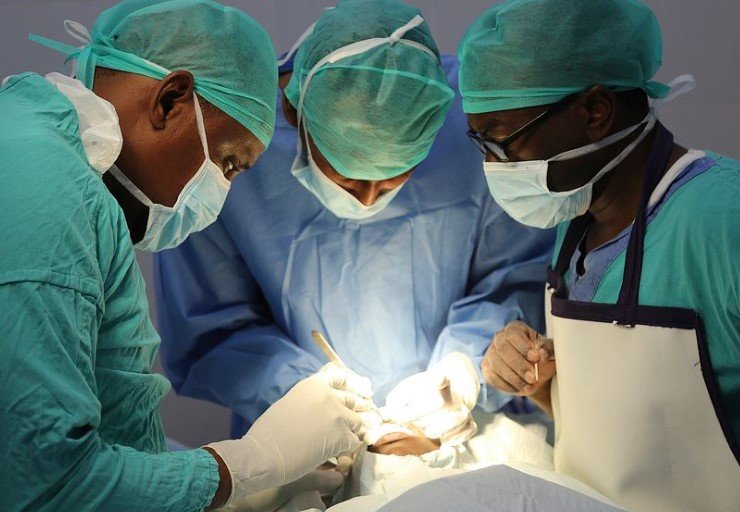Tabitha Crowe’s harrowing experience underscores a growing issue for women in Louisiana seeking medical care after miscarriages. Facing delays and denials at local hospitals, she was left with no choice but to travel across state lines for necessary treatment.
In August 2024, Tabitha Crowe found herself in a devastating situation. While visiting her parents in southern Louisiana, Crowe woke up to intense bleeding—her first miscarriage. Her parents rushed her to a nearby hospital, where the pain and blood loss left her feeling faint and disoriented. Yet, despite the severity of her condition, Crowe says she was not offered a routine miscarriage procedure that could have alleviated her suffering. The absence of appropriate care was a stark reminder of how the state’s strict abortion laws are complicating essential medical treatments for women experiencing miscarriage.
A Miscarriage and Its Complications
A miscarriage is a common and traumatic experience, affecting 10 to 20% of known pregnancies in the United States. For many women, the body naturally expels the pregnancy tissue over a period of time. However, when that doesn’t happen or when complications arise, medical intervention is needed. The American College of Obstetricians and Gynecologists (ACOG) recommends procedures such as vacuum aspiration or dilation and curettage (D&C) in these situations, particularly in the first trimester.

However, Louisiana’s strict abortion laws complicate this process. With the near-total abortion ban in place, doctors who perform abortions face the threat of imprisonment unless a woman’s life is at immediate risk. This has resulted in a reluctance to provide common miscarriage treatments like D&Cs, which many health providers now view as “abortive” procedures, even when they’re medically necessary to avoid infection and other risks.
Crowe’s experience illustrates this troubling shift in care. Despite her severe symptoms and explicit request for a D&C, two different hospitals in Louisiana refused to offer the procedure. Instead, she was told to wait for her miscarriage to progress naturally, which only added to her physical and emotional distress. “I think they were waiting for me to get in bad enough health,” Crowe said, reflecting on the delays. “But that’s not care. That’s just waiting.”
A Rise in Delayed and Dangerous Care
Louisiana’s situation is not unique. Since the Dobbs v. Jackson decision that overturned Roe v. Wade, several states with abortion bans have reported cases of delayed or denied medical care for women facing miscarriage. Many patients are forced to endure extended pain or take matters into their own hands when necessary treatments are withheld.
At least some doctors in these states are increasingly recommending riskier, more invasive procedures like Cesarean sections or inductions for pregnancies that are no longer viable, rather than the medically preferred options like D&Cs. These procedures can be more dangerous for women and may not even resolve the miscarriage, adding to the trauma women face during what is already an incredibly difficult experience.
The Impact of State Laws on Medical Decision-Making
The ripple effect of abortion bans is evident in states like Louisiana, where doctors and healthcare providers are left to navigate a complex legal landscape. While Louisiana’s law includes exceptions for cases where a woman’s life is at risk, the interpretation of these laws often leaves physicians uncertain of when and how to intervene. This legal ambiguity leads to hesitancy in offering routine miscarriage care, which could have serious consequences for women like Crowe.
What’s worse is the lack of transparency. Crowe claims she was never informed that Louisiana’s abortion restrictions played a role in the denial of care. “You go to a hospital, you expect care, you expect some type of answers on what’s going on,” she said. Instead, she was left without the necessary treatment, struggling to deal with the physical and emotional pain alone.
The Broader Health Consequences of Delayed Care
Delaying care for miscarriage is not without its risks. An ongoing investigation by ProPublica has highlighted several tragic deaths linked to abortion bans, including cases where women were denied D&Cs and experienced life-threatening complications. One recent example involved a young mother in Texas who spent hours in the ER but was never offered a D&C that could have saved her life.
Louisiana’s refusal to address the role of its abortion laws in these cases only adds to the frustration. Like Crowe, many women in states with strict abortion laws find themselves in a limbo, forced to wait for their conditions to worsen before receiving necessary medical care. Some states, including Georgia and Texas, have even taken steps to limit access to information about maternal mortality rates, making it harder to track the negative consequences of these laws.
The Future of Maternal Health in Anti-Abortion States
The consequences of the ongoing legal and medical battles over abortion access will continue to shape healthcare for women across the country. In some states, health officials have tried to push back against what they view as a dangerous trend, such as Georgia’s dismissal of a maternal mortality committee that connected deaths to the state’s abortion ban. But efforts to address these systemic issues are often slow and lack transparency, leaving women like Crowe searching for answers.
For now, Crowe is left to reflect on her experience and seek answers for why she was denied care. Her ordeal, though deeply personal, is part of a broader trend in Louisiana and other anti-abortion states where women face greater risks to their health due to the interplay between restrictive laws and medical practice.

Comments